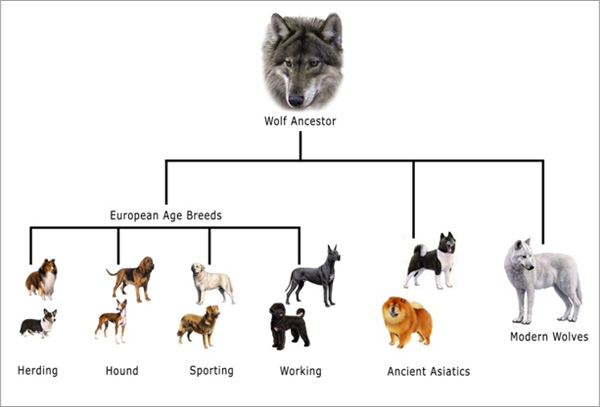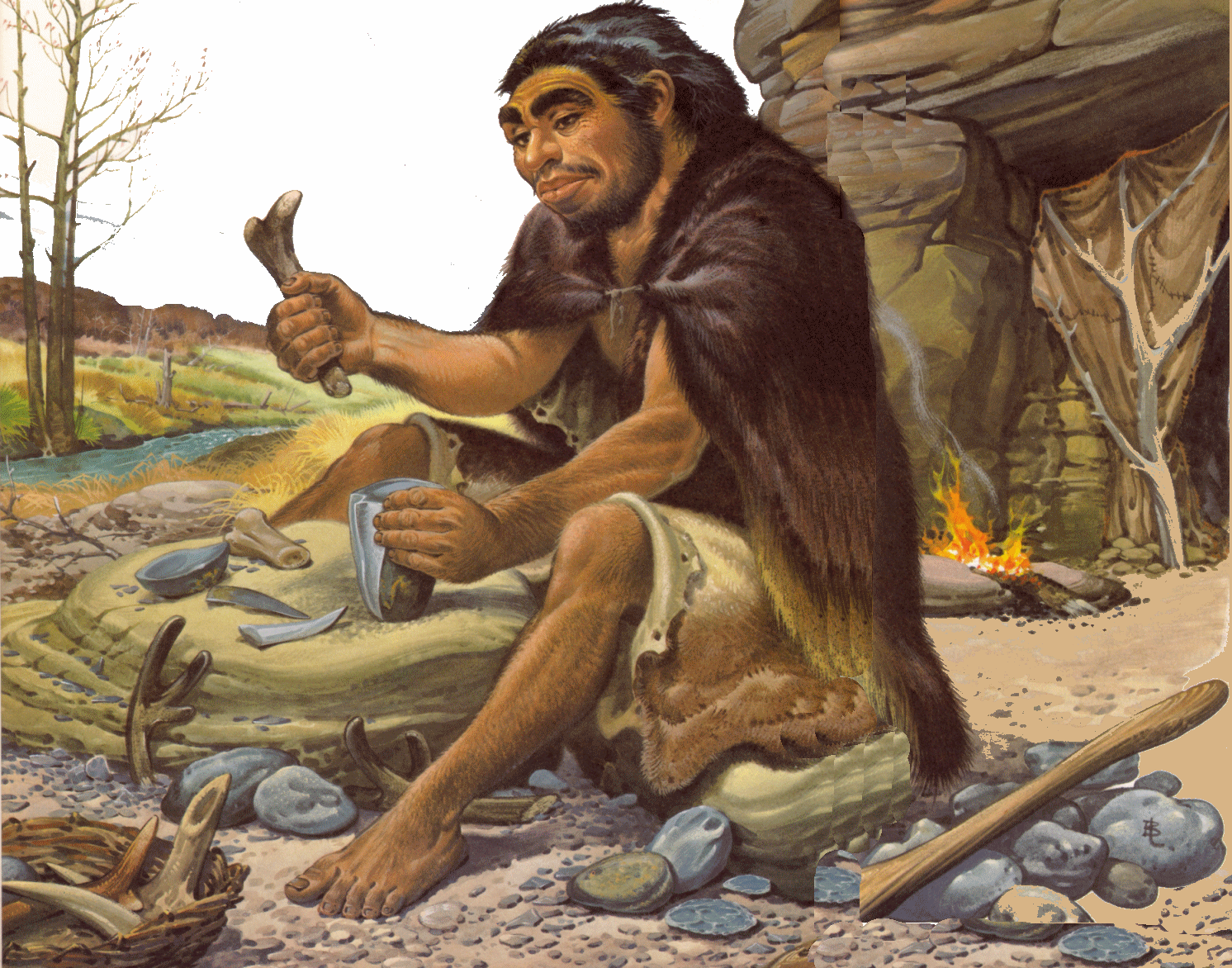
Domesticated dog breeds evolved long ago from the wolf. In a study published in Nature, researchers examined differences in the genomes of modern domesticated breeds and wolves and made some interesting discoveries. They expected differences in the nervous systems since the species behave differently. They also found many differences in genes effecting metabolism, especially digestion of carbohydrates. Domesticated breeds digest starches much better than wolves. From Science News:
The new study focuses on genetic differences between 60 dogs representing 14 breeds and 12 wolves from around the world. Those changes, the researchers reasoned, could identify genes that were important in separating dogs from wolves.
The researchers determined the genetic makeup of groups of dogs and compared the results to those from wolves, concentrating on parts of the genetic instruction book that differ between the two species. As they had expected, the researchers uncovered differences in many genes relating to the brain. But the search also revealed lots of genes involved in starch digestion and metabolism, and in the use of fats. Dogs, the team found, have more copies than wolves do of the AMY2B gene, which produces an enzyme that breaks starch into easily digestible sugars.
Other genetic variants seem to contribute to dogs’ increased ability to convert a sugar called maltose to glucose, the sugar that cells prefer to burn for energy. Yet other genetic changes improve dogs’ ability to move glucose into their cells. Combined, the tweaks alter dogs’ metabolism so they can get more energy out of a carbohydrate-rich diet than wolves can, the researchers conclude. The scientists confirmed the effect of the genetic variants by identifying biochemical differences in starch metabolism in blood and tissue samples from dogs and wolves.
